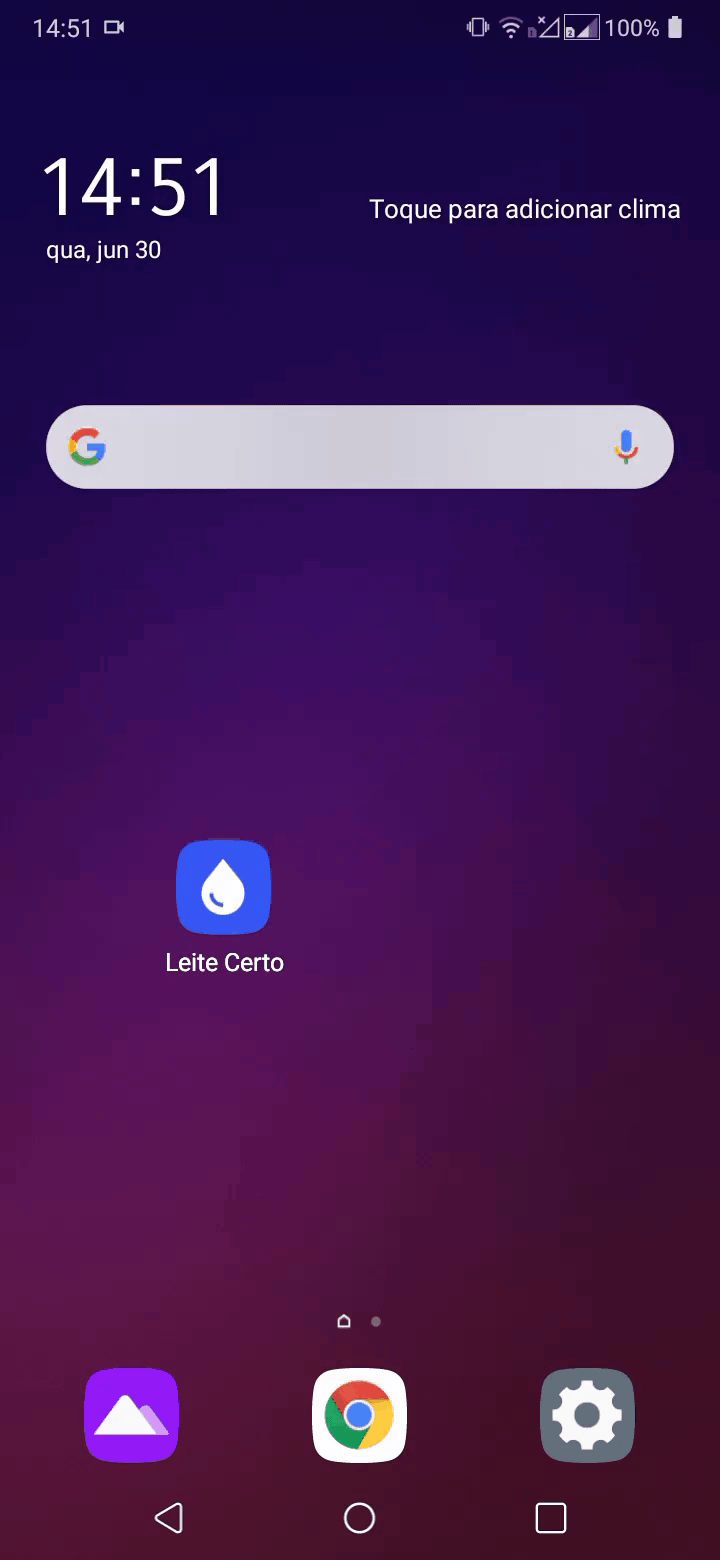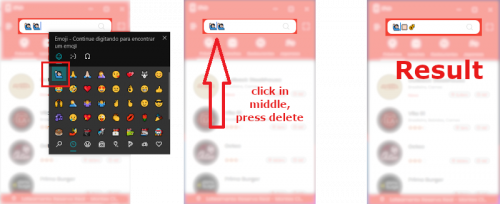-
Content Count
281 -
Joined
-
Last visited
-
Days Won
31
Posts posted by vfbb
-
-
@Rollo62 @dwrbudr @RDP1974 @Edwin Yip @Kas Ob. @hsauro
I finally released version 1.1 which has been extensively tested on all platforms, which includes a complete demo project, demonstrating how to render svg files, lottie files and more, as well as fixing the issues with backwards compatibility, at the moment the library works on version XE6+ VCL or FMX.
Skia's SVG module is still in the experimental phase, even though it works extremely well with most SVG files. Some bugs we detected in Skia's SVG module will be reported later today, however, some issues I'll expose here so you can help the community:
- Apparently, there is a format incompatibility - vectorized files exported as SVG by Adobe programs are not supported by Skia, however, if you use other online converters (like cloudconvert.com) to convert the .eps or the .ai to svg, it will probably works perfectly.
- In macOS depending on the language, the decimal separator is not dot (.), ie the conversion from string to float happens wrong depending on the macOS default system language
Remarks: These errors are only in relation to the SVG module, which is still in the experimental phase, in addition, Skia is a robust and stable library; If the SVG file works on one platform, it will work the same on all.
Changelog
- Added FMX sample (working from delphi XE6 and above, with platforms Win32, Win64, OSX64, iOS64, Android32, Android64);
- Added VCL sample (working from delphi XE6 and above);
- Added pre-built binaries of skia to repository, to facilitate implementation and to serve the samples;
- Updated skia to version 0.29.0;
- Added icudtl.dat file to windows platform;
- Fixed text shaping with RTL language;
- Fixed compilation in iOS;
- Fixed backwards compatibility with delphi XE6 above;
About samples
The samples already have the binaries configured. They are ready to Run.
-
 1
1
-
 2
2
-
2 hours ago, Edwin Yip said:Very very very nice! And thanks for your great efforts in providing the Delphi community this powerful 2D library wrapper!
Two questions:
- What's the most convenient way to obtain the skia dll without building from source?
Update: Sorry, I didn't notice the external skia repository since I use TortoiseSVN to checkout github repos, but there is still not any DLL inside that repository...
- What's the oldest Delphi compiler supported?
Thanks!
Just download the .zip file attached to the release tag, it contains the .dlls, .so and .a. Externals has an edited version of Skia, with a flat api exclusive to the library. There are instructions for compiling in BUILD.md
2 hours ago, Kas Ob. said:Impressive work, and i have 2 points to point
1) While the library mentioned as for XE6+, i can't compile it on XE8 or Seattle, so couldn't try it for myself.
2) About Right to Left Language support
(edit: can't paste the image of the wrong rendered text.)
Well this can't be right, and to my knowledge about Skia itself that it depend on the International Components for Unicode (ICU) project http://site.icu-project.org/
Hence, it will need the ICU data to render such text, combine that with Google Chrome does in fact include a dedicated file contain the ICU project data, also searching the internet i think you will need to provide the ICU data and Skia will be able to render RTL text right.
Peeking into the included Skia dynamic library, i say it does for a fact look for a file "icudtl.dat" (around 10mb file), which happen to be included in Google Chrome binary folder.
So i would suggest to investigate this and try to make the RTL text render right.
Hope that help.
ps: @Alexander Sviridenkov Thank you ! you nailed it.
1. I confess that I only tested the first versions on the XE6, but in fact the code has changed a lot since then. I will fix it.
2. SkShaper uses Harfbuzz, but your comment was great, because although the example works without icu data, investigating, I realize that to use Harfbuzz there is still a dependency on ICU. For macOS and iOS SkShaper uses CoreText, dispensing with ICU and Harfbuzz, which is great because in the case of iOS the library is static. Anyway, I'm going to investigate and test it on all platforms, even though it worked without icu data. It seems to me that PDF Subset also uses ICU, I'll investigate anyway.
1 hour ago, dwrbudr said:Could you please add the source of the Skia Demo to the repository?
I'll clean up the demo code and create a little more robust example and add it to the repository.
-
 1
1
-
-
The result of a simple demo in delphi:
-
 1
1
-
-

Website: github.com/viniciusfbb/skia4delphi
Skia4Delphi is a cross-platform 2D graphics API for Delphi based on Google's Skia Graphics Library (skia.org).
Google's Skia Graphics Library serves as the graphics engine for Google Chrome and Chrome OS, Android, Flutter, Xamarin, Mozilla Firefox and Firefox OS, and many other products.
Skia provides a more robust Canvas, being very fast and very stable, with hundreds of features for drawing 2D graphics, in addition to a text shaping engine designed to render texts in the most diverse languages with right-to-left support (such as the Persian language), full support for loading SVG files, support for creating PDF files, support for rendering Lottie files (verotized animations created in Adobe After Effects), integration with the GPU, among countless other cool features.
Skia's idea is similar to Firemonkey's, the same codebase used in an OS will work the same on other platforms. It is also possible to design using the CPU in independent background threads.
Skia also has native codecs, of course if you don't use the SKCodec class, when loading an encoded image it will give priority to using the platform's native codec, but it is possible to use its codec, for example for jpeg files it uses libjpeg-turbo and for png files libpng which maybe in certain environments may perform better than native.
See some examples:
Advanced shapes
Advanced text rendering / shaping

Svg
Lottie files



And much more...
-
 12
12
-
 5
5
-
-
1 hour ago, toufik said:TDialogService.MessageDialog('you are gonna edit something ', TMsgDlgType.mtInformation, [TMsgDlgBtn.mbYes], TMsgDlgBtn.mbYes,0,
to
TDialogService.MessageDialog('you are gonna edit something ', TMsgDlgType.mtConfirmation, [TMsgDlgBtn.mbYes, TMsgDlgBtn.mbNo], TMsgDlgBtn.mbYes, 0,
Yes, the only button combinations that work on Windows are:
const mbYesNo = [TMsgDlgBtn.mbYes, TMsgDlgBtn.mbNo]; mbYesNoCancel = [TMsgDlgBtn.mbYes, TMsgDlgBtn.mbNo, TMsgDlgBtn.mbCancel]; mbYesAllNoAllCancel = [TMsgDlgBtn.mbYes, TMsgDlgBtn.mbYesToAll, TMsgDlgBtn.mbNo, TMsgDlgBtn.mbNoToAll, TMsgDlgBtn.mbCancel]; mbOKCancel = [TMsgDlgBtn.mbOK, TMsgDlgBtn.mbCancel]; mbAbortRetryIgnore = [TMsgDlgBtn.mbAbort, TMsgDlgBtn.mbRetry, TMsgDlgBtn.mbIgnore]; mbAbortIgnore = [TMsgDlgBtn.mbAbort, TMsgDlgBtn.mbIgnore];
-
 1
1
-
 1
1
-
-
If you just want the device model name, I made a function just for it:
uses System.SysUtils, System.Generics.Collections, System.Generics.Defaults, Posix.SysSysctl, Posix.StdDef; function GetDeviceModelString: string; // Pretty names list in https://gist.github.com/adamawolf/3048717 function GetPrettyName(const AMachine: string): string; type TAppleDevice = record Machine: string; Name: string; end; const AppleDevices: array[0..145] of TAppleDevice = ( (Machine: 'arm64'; Name: 'iPhone Simulator'), (Machine: 'i386'; Name: 'iPhone Simulator'), (Machine: 'ipad1,1'; Name: 'iPad'), (Machine: 'ipad1,2'; Name: 'iPad 3G'), (Machine: 'ipad11,1'; Name: 'iPad mini 5th Gen (WiFi)'), (Machine: 'ipad11,2'; Name: 'iPad mini 5th Gen'), (Machine: 'ipad11,3'; Name: 'iPad Air 3rd Gen (WiFi)'), (Machine: 'ipad11,4'; Name: 'iPad Air 3rd Gen'), (Machine: 'ipad11,6'; Name: 'iPad 8th Gen (WiFi)'), (Machine: 'ipad11,7'; Name: 'iPad 8th Gen (WiFi+Cellular)'), (Machine: 'ipad13,1'; Name: 'iPad air 4th Gen (WiFi)'), (Machine: 'ipad13,10'; Name: 'iPad Pro 12.9 inch 5th Gen'), (Machine: 'ipad13,11'; Name: 'iPad Pro 12.9 inch 5th Gen'), (Machine: 'ipad13,2'; Name: 'iPad air 4th Gen (WiFi+Cellular)'), (Machine: 'ipad13,4'; Name: 'iPad Pro 11 inch 3rd Gen'), (Machine: 'ipad13,5'; Name: 'iPad Pro 11 inch 3rd Gen'), (Machine: 'ipad13,6'; Name: 'iPad Pro 11 inch 3rd Gen'), (Machine: 'ipad13,7'; Name: 'iPad Pro 11 inch 3rd Gen'), (Machine: 'ipad13,8'; Name: 'iPad Pro 12.9 inch 5th Gen'), (Machine: 'ipad13,9'; Name: 'iPad Pro 12.9 inch 5th Gen'), (Machine: 'ipad2,1'; Name: '2nd Gen iPad'), (Machine: 'ipad2,2'; Name: '2nd Gen iPad GSM'), (Machine: 'ipad2,3'; Name: '2nd Gen iPad CDMA'), (Machine: 'ipad2,4'; Name: '2nd Gen iPad New Revision'), (Machine: 'ipad2,5'; Name: 'iPad mini'), (Machine: 'ipad2,6'; Name: 'iPad mini GSM+LTE'), (Machine: 'ipad2,7'; Name: 'iPad mini CDMA+LTE'), (Machine: 'ipad3,1'; Name: '3rd Gen iPad'), (Machine: 'ipad3,2'; Name: '3rd Gen iPad CDMA'), (Machine: 'ipad3,3'; Name: '3rd Gen iPad GSM'), (Machine: 'ipad3,4'; Name: '4th Gen iPad'), (Machine: 'ipad3,5'; Name: '4th Gen iPad GSM+LTE'), (Machine: 'ipad3,6'; Name: '4th Gen iPad CDMA+LTE'), (Machine: 'ipad4,1'; Name: 'iPad Air (WiFi)'), (Machine: 'ipad4,2'; Name: 'iPad Air (GSM+CDMA)'), (Machine: 'ipad4,3'; Name: '1st Gen iPad Air (China)'), (Machine: 'ipad4,4'; Name: 'iPad mini Retina (WiFi)'), (Machine: 'ipad4,5'; Name: 'iPad mini Retina (GSM+CDMA)'), (Machine: 'ipad4,6'; Name: 'iPad mini Retina (China)'), (Machine: 'ipad4,7'; Name: 'iPad mini 3 (WiFi)'), (Machine: 'ipad4,8'; Name: 'iPad mini 3 (GSM+CDMA)'), (Machine: 'ipad4,9'; Name: 'iPad Mini 3 (China)'), (Machine: 'ipad5,1'; Name: 'iPad mini 4 (WiFi)'), (Machine: 'ipad5,2'; Name: '4th Gen iPad mini (WiFi+Cellular)'), (Machine: 'ipad5,3'; Name: 'iPad Air 2 (WiFi)'), (Machine: 'ipad5,4'; Name: 'iPad Air 2 (Cellular)'), (Machine: 'ipad6,11'; Name: 'iPad (2017)'), (Machine: 'ipad6,12'; Name: 'iPad (2017)'), (Machine: 'ipad6,3'; Name: 'iPad Pro (9.7 inch, WiFi)'), (Machine: 'ipad6,4'; Name: 'iPad Pro (9.7 inch, WiFi+LTE)'), (Machine: 'ipad6,7'; Name: 'iPad Pro (12.9 inch, WiFi)'), (Machine: 'ipad6,8'; Name: 'iPad Pro (12.9 inch, WiFi+LTE)'), (Machine: 'ipad7,1'; Name: 'iPad Pro 2nd Gen (WiFi)'), (Machine: 'ipad7,11'; Name: 'iPad 7th Gen 10.2-inch (WiFi)'), (Machine: 'ipad7,12'; Name: 'iPad 7th Gen 10.2-inch (WiFi+Cellular)'), (Machine: 'ipad7,2'; Name: 'iPad Pro 2nd Gen (WiFi+Cellular)'), (Machine: 'ipad7,3'; Name: 'iPad Pro 10.5-inch'), (Machine: 'ipad7,4'; Name: 'iPad Pro 10.5-inch'), (Machine: 'ipad7,5'; Name: 'iPad 6th Gen (WiFi)'), (Machine: 'ipad7,6'; Name: 'iPad 6th Gen (WiFi+Cellular)'), (Machine: 'ipad8,1'; Name: 'iPad Pro 11 inch 3rd Gen (WiFi)'), (Machine: 'ipad8,10'; Name: 'iPad Pro 11 inch 4th Gen (WiFi+Cellular)'), (Machine: 'ipad8,11'; Name: 'iPad Pro 12.9 inch 4th Gen (WiFi)'), (Machine: 'ipad8,12'; Name: 'iPad Pro 12.9 inch 4th Gen (WiFi+Cellular)'), (Machine: 'ipad8,2'; Name: 'iPad Pro 11 inch 3rd Gen (1TB, WiFi)'), (Machine: 'ipad8,3'; Name: 'iPad Pro 11 inch 3rd Gen (WiFi+Cellular)'), (Machine: 'ipad8,4'; Name: 'iPad Pro 11 inch 3rd Gen (1TB, WiFi+Cellular)'), (Machine: 'ipad8,5'; Name: 'iPad Pro 12.9 inch 3rd Gen (WiFi)'), (Machine: 'ipad8,6'; Name: 'iPad Pro 12.9 inch 3rd Gen (1TB, WiFi)'), (Machine: 'ipad8,7'; Name: 'iPad Pro 12.9 inch 3rd Gen (WiFi+Cellular)'), (Machine: 'ipad8,8'; Name: 'iPad Pro 12.9 inch 3rd Gen (1TB, WiFi+Cellular)'), (Machine: 'ipad8,9'; Name: 'iPad Pro 11 inch 4th Gen (WiFi)'), (Machine: 'iphone1,1'; Name: 'iPhone'), (Machine: 'iphone1,2'; Name: 'iPhone 3G'), (Machine: 'iphone10,1'; Name: 'iPhone 8'), (Machine: 'iphone10,2'; Name: 'iPhone 8 Plus'), (Machine: 'iphone10,3'; Name: 'iPhone X Global'), (Machine: 'iphone10,4'; Name: 'iPhone 8'), (Machine: 'iphone10,5'; Name: 'iPhone 8 Plus'), (Machine: 'iphone10,6'; Name: 'iPhone X GSM'), (Machine: 'iphone11,2'; Name: 'iPhone XS'), (Machine: 'iphone11,4'; Name: 'iPhone XS Max'), (Machine: 'iphone11,6'; Name: 'iPhone XS Max Global'), (Machine: 'iphone11,8'; Name: 'iPhone XR'), (Machine: 'iphone12,1'; Name: 'iPhone 11'), (Machine: 'iphone12,3'; Name: 'iPhone 11 Pro'), (Machine: 'iphone12,5'; Name: 'iPhone 11 Pro Max'), (Machine: 'iphone12,8'; Name: 'iPhone SE 2nd Gen'), (Machine: 'iphone13,1'; Name: 'iPhone 12 Mini'), (Machine: 'iphone13,2'; Name: 'iPhone 12'), (Machine: 'iphone13,3'; Name: 'iPhone 12 Pro'), (Machine: 'iphone13,4'; Name: 'iPhone 12 Pro Max'), (Machine: 'iphone2,1'; Name: 'iPhone 3GS'), (Machine: 'iphone3,1'; Name: 'iPhone 4'), (Machine: 'iphone3,2'; Name: 'iPhone 4 GSM Rev A'), (Machine: 'iphone3,3'; Name: 'iPhone 4 CDMA'), (Machine: 'iphone4,1'; Name: 'iPhone 4S'), (Machine: 'iphone5,1'; Name: 'iPhone 5 (GSM)'), (Machine: 'iphone5,2'; Name: 'iPhone 5 (GSM+CDMA)'), (Machine: 'iphone5,3'; Name: 'iPhone 5C (GSM)'), (Machine: 'iphone5,4'; Name: 'iPhone 5C (Global)'), (Machine: 'iphone6,1'; Name: 'iPhone 5S (GSM)'), (Machine: 'iphone6,2'; Name: 'iPhone 5S (Global)'), (Machine: 'iphone7,1'; Name: 'iPhone 6 Plus'), (Machine: 'iphone7,2'; Name: 'iPhone 6'), (Machine: 'iphone8,1'; Name: 'iPhone 6s'), (Machine: 'iphone8,2'; Name: 'iPhone 6s Plus'), (Machine: 'iphone8,4'; Name: 'iPhone SE (GSM)'), (Machine: 'iphone9,1'; Name: 'iPhone 7'), (Machine: 'iphone9,2'; Name: 'iPhone 7 Plus'), (Machine: 'iphone9,3'; Name: 'iPhone 7'), (Machine: 'iphone9,4'; Name: 'iPhone 7 Plus'), (Machine: 'ipod1,1'; Name: '1st Gen iPod'), (Machine: 'ipod2,1'; Name: '2nd Gen iPod'), (Machine: 'ipod3,1'; Name: '3rd Gen iPod'), (Machine: 'ipod4,1'; Name: '4th Gen iPod'), (Machine: 'ipod5,1'; Name: '5th Gen iPod'), (Machine: 'ipod7,1'; Name: '6th Gen iPod'), (Machine: 'ipod9,1'; Name: '7th Gen iPod'), (Machine: 'watch1,1'; Name: 'Apple Watch 38mm case'), (Machine: 'watch1,2'; Name: 'Apple Watch 42mm case'), (Machine: 'watch2,3'; Name: 'Apple Watch Series 2 38mm case'), (Machine: 'watch2,4'; Name: 'Apple Watch Series 2 42mm case'), (Machine: 'watch2,6'; Name: 'Apple Watch Series 1 38mm case'), (Machine: 'watch2,7'; Name: 'Apple Watch Series 1 42mm case'), (Machine: 'watch3,1'; Name: 'Apple Watch Series 3 38mm case (GPS+Cellular)'), (Machine: 'watch3,2'; Name: 'Apple Watch Series 3 42mm case (GPS+Cellular)'), (Machine: 'watch3,3'; Name: 'Apple Watch Series 3 38mm case (GPS)'), (Machine: 'watch3,4'; Name: 'Apple Watch Series 3 42mm case (GPS)'), (Machine: 'watch4,1'; Name: 'Apple Watch Series 4 40mm case (GPS)'), (Machine: 'watch4,2'; Name: 'Apple Watch Series 4 44mm case (GPS)'), (Machine: 'watch4,3'; Name: 'Apple Watch Series 4 40mm case (GPS+Cellular)'), (Machine: 'watch4,4'; Name: 'Apple Watch Series 4 44mm case (GPS+Cellular)'), (Machine: 'watch5,1'; Name: 'Apple Watch Series 5 40mm case (GPS)'), (Machine: 'watch5,10'; Name: 'Apple Watch SE 44mm case (GPS)'), (Machine: 'watch5,11'; Name: 'Apple Watch SE 40mm case (GPS+Cellular)'), (Machine: 'watch5,12'; Name: 'Apple Watch SE 44mm case (GPS+Cellular)'), (Machine: 'watch5,2'; Name: 'Apple Watch Series 5 44mm case (GPS)'), (Machine: 'watch5,3'; Name: 'Apple Watch Series 5 40mm case (GPS+Cellular)'), (Machine: 'watch5,4'; Name: 'Apple Watch Series 5 44mm case (GPS+Cellular)'), (Machine: 'watch5,9'; Name: 'Apple Watch SE 40mm case (GPS)'), (Machine: 'watch6,1'; Name: 'Apple Watch Series 6 40mm case (GPS)'), (Machine: 'watch6,2'; Name: 'Apple Watch Series 6 44mm case (GPS)'), (Machine: 'watch6,3'; Name: 'Apple Watch Series 6 40mm case (GPS+Cellular)'), (Machine: 'watch6,4'; Name: 'Apple Watch Series 6 44mm case (GPS+Cellular)'), (Machine: 'x86_64'; Name: 'iPhone Simulator')); var LDevice: TAppleDevice; LIndex: Integer; LStringComparer: IComparer<string>; begin LDevice.Machine := AMachine.ToLower; LDevice.Name := ''; LStringComparer := TComparer<string>.Default; if TArray.BinarySearch<TAppleDevice>(AppleDevices, LDevice, LIndex, TComparer<TAppleDevice>.Construct( function(const ALeft, ARight: TAppleDevice): Integer begin Result := LStringComparer.Compare(ALeft.Machine, ARight.Machine); end)) then begin Result := AppleDevices[LIndex].Name; end else if AMachine.IsEmpty then Result := '' else begin {$IFDEF DEBUG} for LIndex := 0 to Length(AppleDevices)-1 do if (AppleDevices[LIndex].Machine <> AppleDevices[LIndex].Machine.ToLower) then raise Exception.Create('Apple device list is wrong (the "Machine" field don''t allow upper case)'); for LIndex := 1 to Length(AppleDevices)-1 do if LStringComparer.Compare(AppleDevices[LIndex-1].Machine, AppleDevices[LIndex].Machine) <> -1 then raise Exception.Create('Apple device list is wrong (it isn''t ordered or have duplicate item)'); {$ENDIF} Result := '[' + AMachine + ']'; end; end; var LSize: size_t; LDeviceModelBuffer: array of Byte; begin sysctlbyname('hw.machine', nil, @LSize, nil, 0); if LSize > 0 then begin SetLength(LDeviceModelBuffer, LSize); sysctlbyname('hw.machine', @LDeviceModelBuffer[0], @LSize, nil, 0); Result := GetPrettyName(UTF8ToString(MarshaledAString(LDeviceModelBuffer))); end else Result := ''; end;
-
Try just:
const LIB_Name = 'libDName.a'; function deviceName: NSString; cdecl; external LIB_Name;
You need to add the .a directory to your project's Search Path. If that doesn't work, try replacing NSString with pointer and converting later manually.
-
Dave, on iOS it works the same way, and with the increase in privacy controls year after year, I think there will be no regressions.
What many apps do is show a form before the permission request saying that it is necessary to grant X permission and if the user clicks on proceed, then requests the permission. This will avoid almost all permissions being denied. And when that happens, there's nothing to do but ask the user to grant permission on the settings (even Telegram does that).
-
 1
1
-
-
A possible problem could be memory leaks due to the ARC that existed in 10.2 and now doesn't exist anymore, you have to Free the objects. There may come a point where your application crashes due to excessive use of memory.
I advise you to run on windows with ReportMemoryLeaksOnShutDown to confirm. If you can't run the entire app, at least part of the code. -
If you set TRESTClient's SynchronizedEvents property to False, you can do this directly:
// FRequest: TRESTRequest // FClient: TRESTClient // FCanRaiseException: Boolean = {$IFDEF DEBUG}True{$ELSE}False{$ENDIF} function TryRequest: Boolean begin FClient.SynchronizedEvents := False; FRequest.Client := FClient; try FRequest.Execute; except on E: ERESTException do begin if FCanRaiseException then Exception.RaiseOuterException(Exception.Create('Service or connection failed')) else Exit(False); end; end; Result := True; end;
This code is blocking, so it must be executed in a task in the background, and communicating with the UI through a queue.
Just a question, what rest api do you is integrating? You may be able to make this integration faster with the Refit library: viniciusfbb/ipub-refit: Simple way to consume REST services (github.com)
-
 1
1
-
 1
1
-
-
@Fabian1648 Apparently you don't know anything about vector manipulation. You cannot directly transform a .png to .svg. I advise you to download the GIMP and go on learning...
But I'll help you, I vectored an icon similar to yours. See your new icon:
Now what you have to do is change the ic_background.xml and ic_foreground.xml.ic_background.xml:
<vector xmlns:android="http://schemas.android.com/apk/res/android" android:width="108dp" android:height="108dp" android:viewportWidth="108.0" android:viewportHeight="108.0"> <path android:name="background" android:fillColor="#1570a6" android:pathData="M0,0L108,0L108,108L0,108z"/> </vector>
ic_foreground.xml:<vector xmlns:android="http://schemas.android.com/apk/res/android" android:width="108dp" android:height="108dp" android:viewportWidth="108.0" android:viewportHeight="108.0"> <path android:name="robot" android:fillColor="#ffffff" android:pathData="M63.56,62.94C63.56,63.72 62.94,64.35 62.16,64.35 62.16,64.35 45.85,64.35 45.85,64.35 45.08,64.35 44.45,63.72 44.45,62.94 44.45,62.94 44.45,48.37 44.45,48.37 48.72,48.36 58.69,48.36 63.56,48.37 63.56,48.37 63.56,62.94 63.56,62.94 63.56,62.94 63.56,62.94 63.56,62.94ZM50.49,40.91C50.57,41.06 50.5,41.26 50.34,41.34 50.34,41.34 50.34,41.34 50.34,41.34 50.19,41.42 49.99,41.36 49.91,41.2 49.91,41.2 47.85,37.18 47.85,37.18 47.77,37.02 47.83,36.83 47.99,36.75 47.99,36.75 47.99,36.75 47.99,36.75 48.15,36.67 48.34,36.73 48.43,36.89 48.43,36.89 50.49,40.91 50.49,40.91 50.49,40.91 50.49,40.91 50.49,40.91ZM57.99,41.07C57.9,41.23 57.7,41.28 57.55,41.19 57.55,41.19 57.55,41.19 57.55,41.19 57.39,41.1 57.34,40.91 57.43,40.75 57.43,40.75 59.69,36.84 59.69,36.84 59.78,36.69 59.98,36.63 60.13,36.72 60.13,36.72 60.13,36.72 60.13,36.72 60.29,36.81 60.34,37.01 60.25,37.17 60.25,37.17 57.99,41.07 57.99,41.07 57.99,41.07 57.99,41.07 57.99,41.07ZM68.54,58.99C68.54,60.12 67.62,61.04 66.49,61.04 66.49,61.04 66.49,61.04 66.49,61.04 65.35,61.04 64.43,60.12 64.43,58.99 64.43,58.99 64.43,50.01 64.43,50.01 64.43,48.87 65.35,47.95 66.49,47.95 66.49,47.95 66.49,47.95 66.49,47.95 67.62,47.95 68.54,48.87 68.54,50.01 68.54,50.01 68.54,58.99 68.54,58.99ZM43.56,58.99C43.56,60.12 42.64,61.04 41.51,61.04 41.51,61.04 41.51,61.04 41.51,61.04 40.38,61.04 39.46,60.12 39.46,58.99 39.46,58.99 39.46,50.01 39.46,50.01 39.46,48.87 40.38,47.95 41.51,47.95 41.51,47.95 41.51,47.95 41.51,47.95 42.64,47.95 43.56,48.87 43.56,50.01 43.56,50.01 43.56,58.99 43.56,58.99ZM52.5,69.27C52.5,70.4 51.58,71.32 50.45,71.32 50.45,71.32 50.45,71.32 50.45,71.32 49.31,71.32 48.4,70.4 48.4,69.27 48.4,69.27 48.4,60.29 48.4,60.29 48.4,59.15 49.31,58.23 50.45,58.23 50.45,58.23 50.45,58.23 50.45,58.23 51.58,58.23 52.5,59.15 52.5,60.29 52.5,60.29 52.5,69.27 52.5,69.27ZM59.62,69.27C59.62,70.4 58.7,71.32 57.57,71.32 57.57,71.32 57.57,71.32 57.57,71.32 56.43,71.32 55.51,70.4 55.51,69.27 55.51,69.27 55.51,60.29 55.51,60.29 55.51,59.15 56.43,58.23 57.57,58.23 57.57,58.23 57.57,58.23 57.57,58.23 58.7,58.23 59.62,59.15 59.62,60.29 59.62,60.29 59.62,69.27 59.62,69.27ZM54.01,38.78C49.01,38.78 44.9,42.58 44.35,47.46 44.35,47.46 63.66,47.46 63.66,47.46 63.11,42.58 59,38.78 54.01,38.78 54.01,38.78 54.01,38.78 54.01,38.78ZM49.65,44.04C49.2,44.04 48.85,43.68 48.85,43.24 48.85,42.8 49.2,42.44 49.65,42.44 50.09,42.44 50.45,42.8 50.45,43.24 50.45,43.68 50.09,44.04 49.65,44.04 49.65,44.04 49.65,44.04 49.65,44.04ZM58.38,44.04C57.94,44.04 57.58,43.68 57.58,43.24 57.58,42.8 57.94,42.44 58.38,42.44 58.82,42.44 59.18,42.8 59.18,43.24 59.18,43.68 58.82,44.04 58.38,44.04 58.38,44.04 58.38,44.04 58.38,44.04Z"/> <path android:name="gear" android:fillColor="#1570a6" android:pathData="M57.83,54.26C57.83,54.26 57.56,53.63 57.56,53.63 57.56,53.63 58.18,52.23 58.13,52.17 58.13,52.17 57.3,51.37 57.3,51.37 57.25,51.31 55.84,51.95 55.84,51.95 55.84,51.95 55.2,51.69 55.2,51.69 55.2,51.69 54.62,50.27 54.54,50.27 54.54,50.27 53.38,50.27 53.38,50.27 53.3,50.27 52.77,51.7 52.77,51.7 52.77,51.7 52.13,51.96 52.13,51.96 52.13,51.96 50.69,51.35 50.64,51.4 50.64,51.4 49.81,52.21 49.81,52.21 49.76,52.26 50.41,53.64 50.41,53.64 50.41,53.64 50.14,54.27 50.14,54.27 50.14,54.27 48.69,54.83 48.69,54.91 48.69,54.91 48.69,56.05 48.69,56.05 48.69,56.13 50.15,56.65 50.15,56.65 50.15,56.65 50.42,57.28 50.42,57.28 50.42,57.28 49.79,58.68 49.85,58.74 49.85,58.74 50.67,59.54 50.67,59.54 50.73,59.6 52.13,58.96 52.13,58.96 52.13,58.96 52.78,59.22 52.78,59.22 52.78,59.22 53.35,60.64 53.43,60.64 53.43,60.64 54.59,60.64 54.59,60.64 54.67,60.64 55.2,59.21 55.2,59.21 55.2,59.21 55.85,58.95 55.85,58.95 55.85,58.95 57.28,59.56 57.34,59.51 57.34,59.51 58.16,58.7 58.16,58.7 58.22,58.65 57.56,57.27 57.56,57.27 57.56,57.27 57.83,56.64 57.83,56.64 57.83,56.64 59.29,56.08 59.29,56 59.29,56 59.29,54.86 59.29,54.86 59.29,54.78 57.83,54.26 57.83,54.26ZM53.99,57.12C53.05,57.12 52.29,56.37 52.29,55.45 52.29,54.54 53.05,53.79 53.99,53.79 54.92,53.79 55.69,54.54 55.69,55.45 55.69,56.37 54.92,57.12 53.99,57.12Z"/> </vector>
-
 1
1
-
-
@Fabian1648 The adaptive icon is the way to have your icon full quality in all devices of all manufacturers.
You did something wrong during the steps as it works on a blank project (you can test).
Remembering that in some versions of android it is necessary to uninstall the old application for the icon to be updated. Also, on some androids (like LG's Android 10) when you click beyond uninstall, the android only disables the application, so you must go to Settings > Applications, and uninstall.
Please provide more information, print the deployment and the manifest and the print also, after a Run, the generated files in the output folder, example: (project)\Android64\Release\(project)\res
-
 1
1
-
-
Adaptive Icon
First of all, don’t uncheck the icons in deployment and don’t change the manifest.
1) Add your icons in .png format in Project Options normally. This is necessary to keep the compatibility with android 7.1 and oldest.
2) You need to create 3 files "ic_launcher.xml", "ic_launcher_background.xml" and "ic_launcher_foreground.xml"
3) ic_launcher.xml example:
<?xml version="1.0" encoding="utf-8"?> <adaptive-icon xmlns:android="http://schemas.android.com/apk/res/android"> <background android:drawable="@drawable/ic_launcher_background" /> <foreground android:drawable="@drawable/ic_launcher_foreground" /> </adaptive-icon>
Add it in deployment with remote path "res\drawable-anydpi-v26"
4) ic_background.xml example:
<vector xmlns:android="http://schemas.android.com/apk/res/android" android:width="108dp" android:height="108dp" android:viewportWidth="108.0" android:viewportHeight="108.0"> <path android:name="square" android:fillColor="#ff3657f4" android:pathData="M0,0 L108,0 L108,108 L0,108 z" /> </vector>
Note that I fixed a solid color (#ff3657f4), but you can put gradients in this xml or an image in place the background (not recomended).
Add it in deployment with remote path "res\drawable"
5) ic_foreground.xml example:
<vector xmlns:android="http://schemas.android.com/apk/res/android" android:width="108dp" android:height="108dp" android:viewportWidth="108.0" android:viewportHeight="108.0"> <path android:name="square" android:fillColor="#ffffffff" android:pathData="M 53.91,32.73 C 54.35,32.75 54.49,33.06 54.75,33.39 54.75,33.39 56.18,35.17 56.18,35.17 56.18,35.17 62.30,42.80 62.30,42.80 62.30,42.80 65.32,46.57 65.32,46.57 67.71,49.56 69.15,51.35 69.99,55.19 70.19,56.06 70.35,56.97 70.35,57.86 70.35,60.63 70.34,61.92 69.39,64.60 67.61,69.60 63.19,73.48 58.06,74.76 56.05,75.26 54.85,75.23 52.81,75.20 51.89,75.19 50.64,74.92 49.74,74.70 44.14,73.29 39.76,68.84 38.20,63.31 37.95,62.41 37.66,60.97 37.65,60.04 37.62,57.15 37.69,55.37 38.79,52.61 39.86,49.91 41.15,48.49 42.92,46.27 42.92,46.27 48.17,39.73 48.17,39.73 48.17,39.73 51.98,34.98 51.98,34.98 52.41,34.44 53.40,33.04 53.91,32.73 Z M 46.57,58.86 C 46.57,58.86 43.70,58.86 43.70,58.86 43.70,58.86 43.70,59.45 43.70,59.45 43.70,63.37 46.54,66.93 50.04,68.42 50.88,68.79 51.80,69.02 52.71,69.13 53.27,69.20 53.36,69.10 54.00,69.26 54.00,69.26 54.00,66.29 54.00,66.29 52.87,66.29 51.97,66.13 50.93,65.66 48.53,64.57 46.57,61.94 46.57,59.25 46.57,59.25 46.57,58.86 46.57,58.86 Z" /> </vector>
You can change the white color (#ffffffff) and the pathData. Note: this pathData is the same path data inside the .svg. If you have your icon in .svg, just open it in notepad and copy the "d" field inside the "path" to the pathData of xml (only if the svg has size 108x108).
Add it in deployment with remote path "res\drawable"
Result
(the low quality is due to the gif format)
Extra
You can do the same with the splash screen (vector splash screen). The vector splash screen works in all android versions supported by Delphi.
-
 4
4
-
-
8 hours ago, David Heffernan said:What's your usage scenario?
8 hours ago, pyscripter said:Notepad and VSCode have similar issues.
There are really few apps on Windows, except for chat apps, which fully support unicode (including MS apps), but in my case I really need to deal with this because it will be just a cross platform chat (Win, Android, iOS).
Today's problem is to fix TEdit, but it is not just that, but the safe way to manipulate any string received from the user. It is the same as using AnsiString/AnsiChar when the input is string (unicode), you are at risk of generating an unexpected string.
To clarify the problem, follow an example on TEdit:
1) Select a TEdit, press Windows key +. to open the emoji window
2) Select for example the "White man raising his hand" which is represented by 7 characters, that is, 14 bytes)3) Proceed:
Example string manipulation:
In a string manipulation it is very common, for example, to take x first characters, so suppose I want to take the first 8 chars:
S := S.Substring(0, 8);
But if S is "🙋🏻♂️🙋🏻♂️", which incredibly has 14 chars, and which is the same as:
S := #55357 + #56907 + #55356 + #57339 + #8205 + #9794 + #65039 + #55357 + #56907 + #55356 + #57339 + #8205 + #9794 + #65039;
When I give the substring (0, 8), the result will be:
S := #55357 + #56907 + #55356 + #57339 + #8205 + #9794 + #65039 + #55357;
Which is represented by:
🙋🏻♂️�
But a Substring (1, 7) would be even worse in this case:

The problem is very clear and a modern application, mainly of chat, has to know how to deal with it.
-
1 hour ago, vfbb said:The best thing to do at this point is to port the C# code.
Wrong! Actually porting the C# code will be laborious and will require maintenance as the unicode is changed.
The best solution at this point is to use apis:
Windows - DWriteTextAnalyze
Android - GraphemeCharsLength := JString.codePointAt(Index);
iOS - CFStringGetRangeOfComposedCharactersAtIndex -
14 hours ago, David Heffernan said:Why would you need to know this, unless you are rendering the text
All manipulations of strings received by user input should consider each element and not each individual character. This is basically why delphi TEdit does not work properly with these kind of emojis (just try adding one and pressing backspace that you will see part of problem). In short, when you don't consider this, you risk breaking a string into a position in the middle of a Grapheme, creating a malformed string.
As I said, this iteration is essential, Embarcadero should implement this natively to work cross-platform just like C # did.
The best thing to do at this point is to port the C # code.
-
Embarcadero should create a class based on C# TextElementEnumerator, which does exactly this.
-
The delphi string is an implementation of UTF-16 in which the "normal" graphic characters corresponding to 1 Char (2 bytes), but having others graphic characters being represented by 2 Chars (4 bytes), the so-called surrogate pair, (like the emoji 🙏). And in this case we need to check if the char IsSurrogate, to know that it is a graphic character of 2 Chars (4 bytes). But the problem is that utf-16 is not limited to a maximum of 4 bytes for a graphic character, in fact it already predicts that a graphic character can have up to 14 bytes for future implementations, and today most of the emojis already occupy at least 8 bytes (like the emoji 🙏🏻 <- light version). This is a problem, because delphi only handles the graphic character with the possibility of being 2 bytes or 4 bytes, and is often converting the graphic character or string to UCS4Char or UCS4String respectively, to treat everyone as being 4 bytes.
So, how do you know the actual size of each graphic character in a string? -
Apparently simple, but in practice nothing trivial, and with nothing on the internet about this, I decided to do a brief tutorial to master the Android system bars.
https://github.com/viniciusfbb/fmx_tutorials/tree/master/delphi_android_system_bars/
-
 3
3
-
-
Just a tip: it is not mandatory to place the .ttf file in the project folder, you can put it in a subfolder then add that subfolder in "Search path"
-
1 hour ago, John Kouraklis said:What's the strategy to shut down a multi-thread app?
This problem is very common because without proper care the threads end in a different order than the units.
The rule to avoid this is: each unit that creates each thread has to guarantee that the thread it created will be canceled and completely terminated until the finalization of the unit.
How to do this? There are several possibilities, I will quote one:
1) Create a way to cancel each thread (it is almost always possible through a simple Boolean + TEvent.SetEvent, but each case must be evaluated)
2) Create a unique TEvent to signal the end of the thread; Just run the thread code in a try finaly FFinishEvent.SetEvent;
3) At the end of the unit, cancel the thread, and give FFinishEvent.WaitFor;-
 1
1
-
-
2 hours ago, Davide Angeli said:It's hard... the project is quite complex with several runtime packages
Have you tried to see if there are any more exception or information debugging the IDE? Open some bpl then Run> Parameters... > Host Application "C:\Program Files (x86)\Embarcadero\Studio\21.0\bin\bds.exe" > Save > press F9
Then new instance of delphi will be created in debug mode, then you can reproduce the error in that delphi instance and you may have more information about the problem.
-
 1
1
-
 1
1
-
-
You can use Firebase Cloud Messaging instead. There are some examples of FCM with delphi in github.
-
On 3/6/2021 at 2:44 PM, Vitaliy said:Thank you very much for all the help, the mentoring was done by @vfbb in a very satisfactory way, and here is my recommendation.
It was a pleasure to help you 😉
![Delphi-PRAXiS [en]](https://en.delphipraxis.net/uploads/monthly_2018_12/logo.png.be76d93fcd709295cb24de51900e5888.png)







Skia4Delphi
in I made this
Posted
@Kas Ob. Made! Thanks.